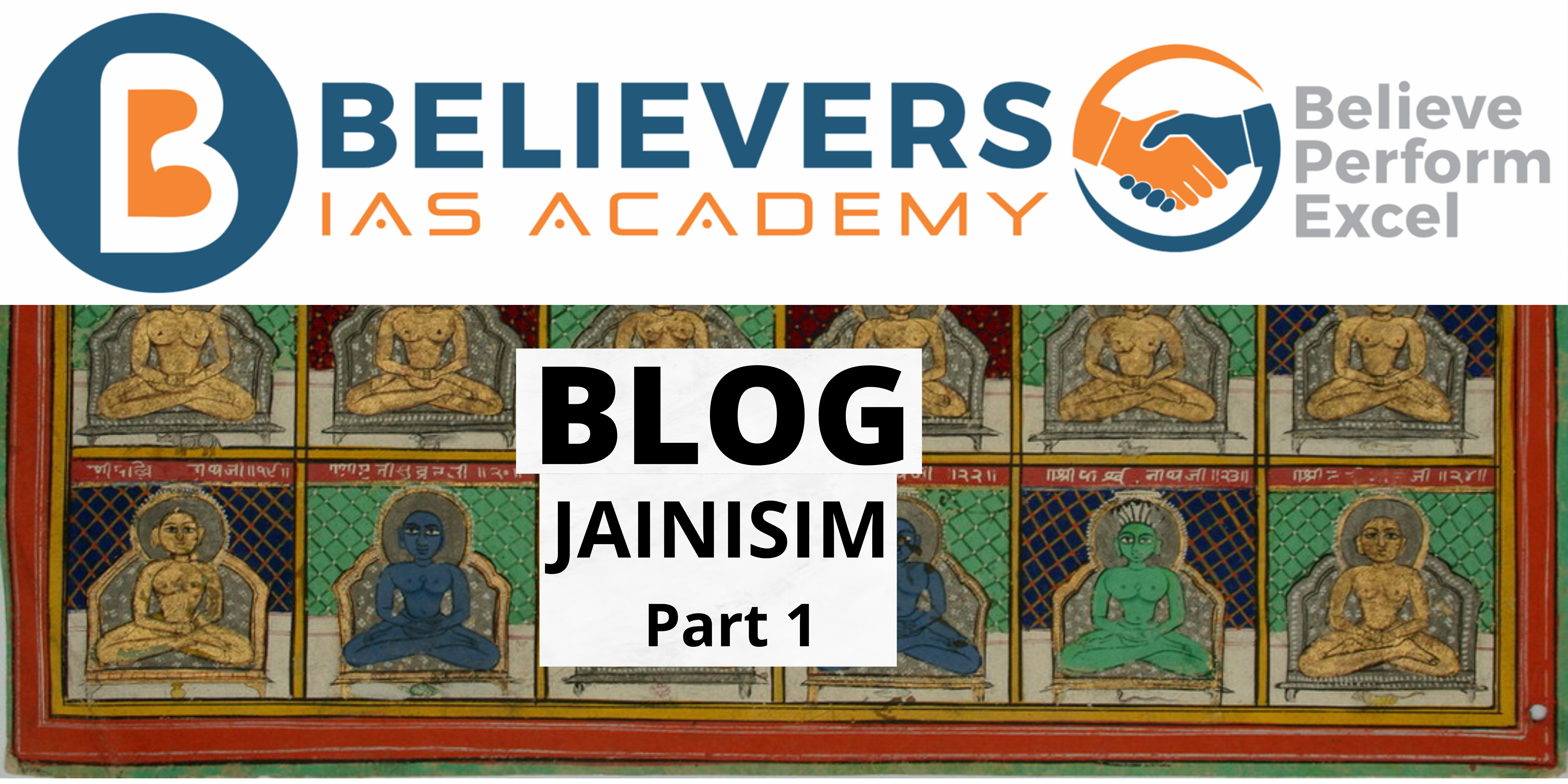JAINISM – Part 1
The origin of Jainism:
- Jainism came to prominence in the 6th century B.C.E. when Vardhamana Mahavira propagated the religion.
- Jain religion is believed to have been founded by Rishabhanath who is also called Rishabhadev.
- Jains believe that there were 24 great teachers or Tirthankaras, the last of whom is Vardhamana Mahavira.
About Mahavira:
- He was born at Kundagrama near Vaisali in 599 BCE.
- His parents were Kshatriyas. His Father was Siddhartha who was the Head of Jnatrika Clan and his Mother Trishala who was the sister of Lichchhavi chief Chetaka.
- Chetaka’s daughter married Haryanka King Bimbisara which makes Mahavira a relative of the Magadhan Ruler.
- Mahavira was married to Yasoda and had a daughter Anojja or Priyadarsana.
- He renounced his home and became a wandering ascetic at the age of 30.
- He went on a truth searching journey for 12 years and spend those years practicing severe austerities, fasting and meditation.
- He is said to have attained perfect/infinite knowledge (kevalajnana) at the age of 42 on the banks of the Rijupalika river.
- It is believed that through kevalajnana, he conquered misery and happiness.
- Because of this conquest, he came to be known as ‘Mahavira’ or The Great Hero or ‘Jina’ i.e, the conqueror and his followers were known as ‘Jainas’.
- He passed away and became a Siddha (fully liberated) at the age of 72 in 527 BCE at Pavapuri near Patna.
The ideals of Jainism:
- Jainism rejects the idea of a creator of the world (God) as well as the authority of the Vedas.
- The Jains believe in karma and in the transmigration of the soul.
- The philosophy of Jains believe that salvation or nirvana comes on getting rid of the cycle of birth and rebirth and can be attained by leading a pure life guided by the three-fold path of right faith, right knowledge and right conduct.
- The right conduct involves not to steal (Asteya), non-possession (Aparigraha), nonviolence (Ahimsa), not to lie and control of the senses (Bramacharya).



